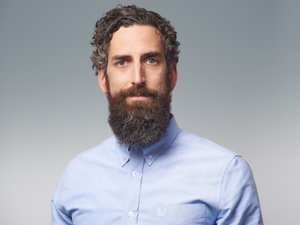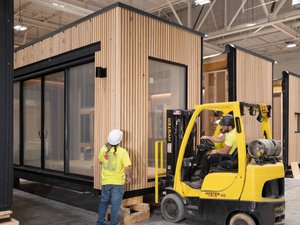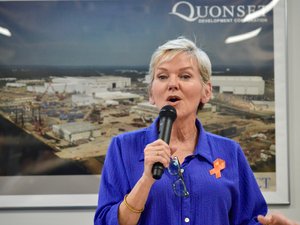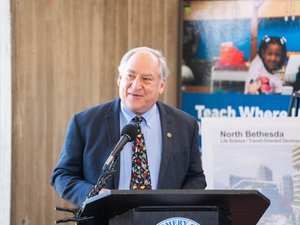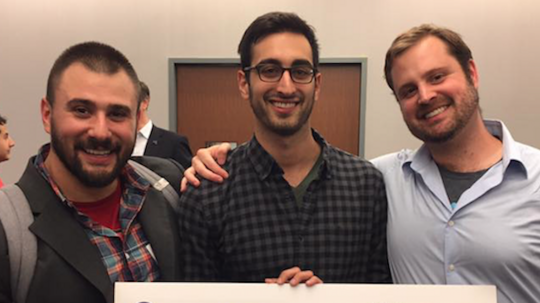
Like most veterans trying to transition back into civilian life, Christian Hyland found himself having trouble sleeping after he returned from a five-year-stint in the Army.
A fan of herbal tea, he'd experiment with different brews to help himself fall asleep. He developed a concoction that did the trick — valerian root, lavender, hops, lemon balm, passionflower, chamomile, and his personal favorite, California poppy — and spent last summer cold-brewing it himself, in his kitchen.
"I thought, 'Why can't I go to a store and buy a ready-to-drink cold sleep tea that's high quality and that you know the ingredients?'," Hyland said.
He approached his friend Nick De Gregorio, a fellow veteran and his classmate in the MBA program at Georgetown University, with his idea.
"He really liked the idea so we decided to roll with it. There was an entrepreneurship class at Georgetown that focused on starting a company, and we both took it with the idea of taking our idea and making a company out of it," Hyland said.
Make a company, they did. They brought on their third co-founder, Matt Harb, and by September, Coyotea was born.
The three-person team has raised around $40,000 to date, composed of their own contributions and winnings from two different pitch competitions, including Georgetown University's Startup Hoyas challenge in April, where they beat out 86 pitches for a $10,000 prize.
With nearly 12,000-units worth of pre-order requests, De Gregorio said they're focusing, for now, on finishing up their first production run smoothly.
The trio sat in Harb's kitchen last October to brew up and bottle around 100 units of the tea. They used Hyland's original recipe, adding in hibiscus and organic lemon juice to act as natural preservatives, and got their first batch into campus convenience stores and cafeterias.
"They all sold out quite quickly, so that validated it as something that students would want... we stopped producing in the kitchen [at that point]," Hyland said.
Most of their sales are online, they said, but they're hoping to eventually come into more physical locations around D.C. soon. They'll be selling at Dog Tag Bakery in Georgetown in coming weeks, and are in talks with some yoga studios and hotels, too.
Their biggest goal, though, is to foster a relationship with the veteran community in D.C.
They've worked with a local nonprofit that works to end veteran homelessness called Friendship Place. Hyland volunteered with them when he first left the Army.
"Our goal is to give 10 percent of our profits to them and really become active members of the community," he said. "Two of the three of us were in the military and know how difficult it is to have to adjust to civilian life."
Being in D.C. is a big help, they said.
"Transitioning back can be really tough... and the D.C. community, in general, was really helpful," De Gregorio said. "Not only that, but there's a huge military presence [in D.C.] and we want to be close to our military brothers and sisters, and be a benefit to them."
Image used via Coyotea

